ISSN ONLINE(2319-8753)PRINT(2347-6710)
ISSN ONLINE(2319-8753)PRINT(2347-6710)
R. Vinish prabhu1 and Dr. C. Velmurugan2
|
| Related article at Pubmed, Scholar Google |
Visit for more related articles at International Journal of Innovative Research in Science, Engineering and Technology
The Pump Industry is characterized by steady growth in periods of economic growth and decline when capital investments are down in high interest rate periods. The demand for pump components can be predicted with some degree of accuracy when scientific tools of inventory management are deployed. These tools help reduce needless inventory levels and lower capital expenses for firms at times when the interest rate and hence cost of capital is high. The aim of this project was to reduce the cost of inventory of items selected by 10 percent points. The items selected were grouped into a two by two matrix, popularly known as Kraljic’s matrix. The items were classified on the basis of whether the spend was high or low and whether supplier vulnerability was high or low. The Quantity price break model was used for items which were low in spends and low in supplier vulnerability. The EOQ model was deployed where the Spend was high and the supplier vulnerability was low. The complete aggregation model was applied where the Spend was low and the Supplier Vulnerability was high and the Taylor aggregation was used when both Spends and Supplier Vulnerability was high. Demand data from April 2012 to March 2013 was used to process information. In addition, procurement and transportation cost was also obtained for each product selected for the analysis. Results showed 25% savings from the EOQ model for rotor shaft respectively. The quantity discount model revealed 3.08% savings potential. Similarly, 9.7% savings for complete aggregation model in security segment and 11.47% saving for tailored aggregation model in critical segment have been attained. In summary, reduction in inventory cost of 13% has been obtained across all the models. Future studies can be carried for other categories of materials in the submersible pump industry.
Keywords |
| Kraljic’s Matrix, Quantity discount model, Economic order quality, complete aggregation model, Tailored aggregation model |
INTRODUCTION |
| The purpose of the project is to make a study about Deccan Pumps Pvt. Ltd and understand the inventory management in pump manufacturing sectors of the company, calculate the efficiencies of pump industries, find out challenges and find out solution for deficiencies and the challenges. The academic project is undertaken to carry out and to study of reduction in inventory of bore well submersible pumps industry. This project has got support from Deccan Pumps Pvt. Ltd Coimbatore. |
| Deccan Pumps Pvt. Ltd has been synonymous with revolutionizing India’s traditional pump manufacturing industry. The industry was started in the year 1981 with the first exclusive production line for submersible pump sets in the country. Then food sufficiency was the major focus of the Indian government. ‘Food sufficiency through ‘green revolution was made possible because of the installation of large quantity of pump sets, especially the bore well submersible pump sets. |
| India’s economy is based mainly on agriculture and it is the back bone of the country. India’s agriculture depends upon the timely monsoon and amount of rainfall in any year. To avoid uncertainly of monsoon, farmers in India resort to various methods of irrigation. India, being a vast country with a high variation in geographical conditions needs several irrigation techniques. |
| In areas of shallow water levels (1-6 meters head) axial flow or mixed flow pumps are used to lift water. Where water levels are at (6-40 meters head), mostly radial flow pumps are used. For deep bore wells submersible pumps or compressor are used depending on the head and discharge requirements and on the availability of water in the bore well. |
| A. Pump Indu stry in India |
| The first electric motor in India was manufactured in Coimbatore in 1930 and thereafter the motor pump industry expanded rapidly. Today 60% of India’s requirements of domestic and agricultural pump sets are made in Coimbatore. The southern India engineering manufacturers association (SIEMA)(established in 1952) has 215 members, manufacturing motors and pumps of various types. Indian pumps are made according to the specifications of the Bureau of Indian standard (BIS), Coimbatore. |
| Inventory management |
| Control of inventory, which typically represents 45% to 90% of all expenses for business, is needed to ensure that the business has the right goods on hand to avoid stockouts, to prevent shrinkage and to provide proper accounting. Many businesses have too much of their limited resource, capital, tied up in their major asset, inventory. They may be an imbalance among different product lines that reduces the customer appeal of the total operation. |
| Inventory control system can give to the range to eyeball system to reserve stock systems to computer-run systems. Valuation of inventory is normally stated at original cost, market value, or current replacement costs, whichever is lowest. This practice is used because it minimizes the possibility of overstating assets. Inventory valuation and appropriate accounting practices. |
| The ideal inventory and proper merchandise turnover will vary from one market to another. Minimum inventories based on reordering time need to become important aspect of buying activity. Carrying costs, material purchases and storage costs are all expensive. However, stock outs are expensive also. All of those costs can be minimized by efficient inventory polices. |
| Inventory control involves the procurement, care and disposition of materials. There are kinds of inventory that are of concern to managers, raw material, in process or semi finished goods, finished goods. If a manager effectively controls these types of inventory, capital can be released that may be tied up in unnecessary inventory, production control can be improved and can protect against deterioration. |
PROBLEM DEFINITION |
| The study has attempted to reduce the inventory of raw material at a leading company in the pump industry. An analysis has been done on current trends of the order quantity and prices of the operation. The production level, inventory level and capacity level have been determined for each period that maximizes the firm profit. |
| A. Aim of the Project |
| To optimize the raw material inventory in Deccan Pumps private limited, Coimbatore. |
| B. Objectives of the Study |
| • To review the literature on inventory management and its implementation concepts. |
| • To study the current trends of the order quantity, demand and price of the operation for the production of 3HP bore well submersible pump. |
| • To analyze existing production process and identify possible sources of improvement in inventory management practices. |
| • To recommend the findings of this study to the manufacturing company. |
| C. Methodologies |
| • Literature review for inventory management in the pumps manufacturing industry has been carried out by referring reviewed journals, books, manuals and related document. |
| • Previous year demand data for finished product and associated raw material and historical order data have been collected from company personnel. Specific products have been selected for analysis. |
| • The process of procurement to despatch was flowcharted to understand the entire manufacturing operation. Methods to classify inventory into appropriate management technique was done using Kraljic’s matrix. Analysis was done using EOQ, Complete and Tailored Aggregation in addition to quantity discount method. |
| • The cost reduction from better inventory management was achieved from detailed calculation for each mathematical model. |
DATA COLLECTION |
| The information for previous year sales data has been collected from the company |
| Table2.1 2011-2012 sales finished product |
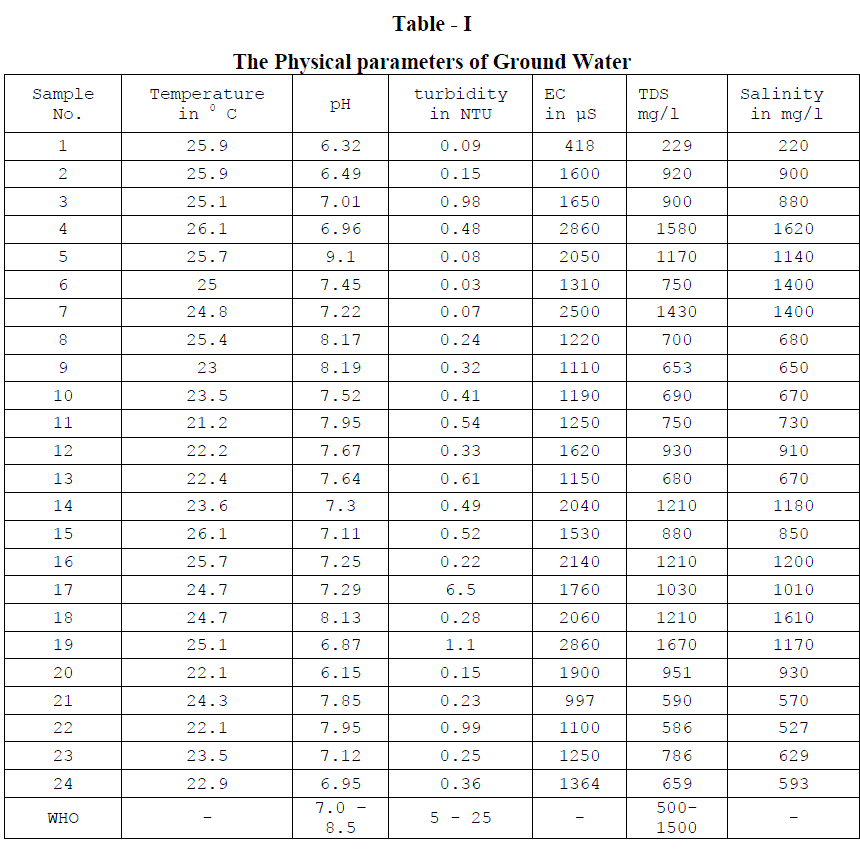 |
ANALYSIS AND I NTERPRETATIONS |
| The Kraljic’s matrix is a supplier relationship matrix and this model can generated the four categories of supplier. Appropriate items have been identified for each of the four quadrants. |
| • Acquisition: Low supplier vulnerability and low firm spend items |
| • Security : High supplier vulnerability and low firm spend items |
| • Profit: Low supplier vulnerability and high firm spend items |
| • Critical: High supplier vulnerability and high firm spend items |
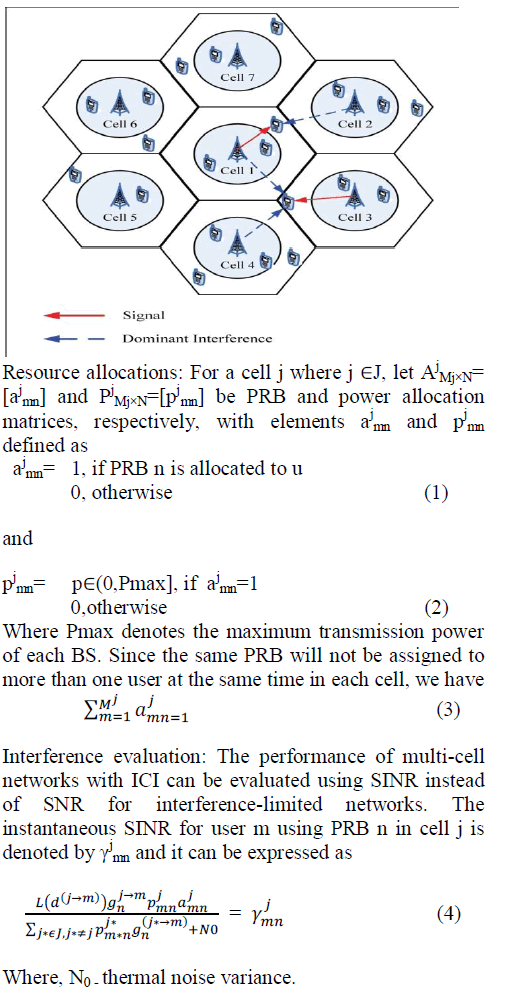 |
| According to Kraljic’s matrix we can generated the four models |
| Deterministic models |
| • Quantity discount model |
| • Economic order quality |
| • Complete aggregation model |
| • Tailored aggregation model |
| A. Quantity Discount Model |
| It allows quantity discount models for reduced the price for purchasing larger quantities items. The quantity discount model has been selected for spares parts like bolts and nuts. |
| A= Annual Demand |
| C= Carrying Cost |
| Q= Buying Quantity |
| I= Holding Cost |
| S= Purchase Order |
| Formula used in Quantity Discount Model |
 |
 |
 |
| D. Tailored Aggregation Model |
| The tailored aggregation model has been chosen for body and coil wires (Critical Quadrant) |
| The identifying the most order frequency component |
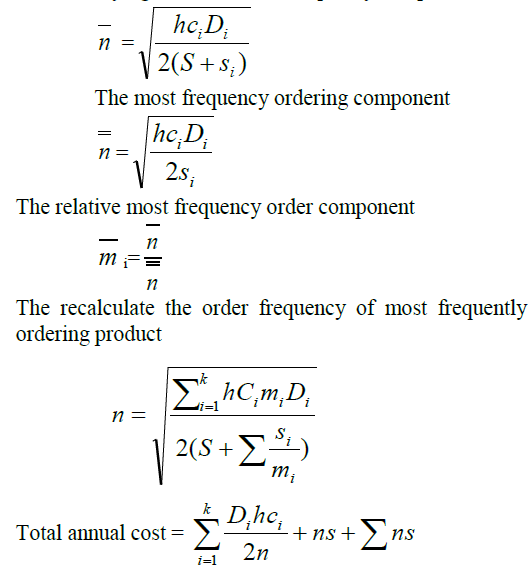 |
RESULTS AND DISCUSSIONS |
| A. Quantity Discount Model |
| The quantity discount models for bolts and nuts |
| Saving around from 3.08 percentage per year |
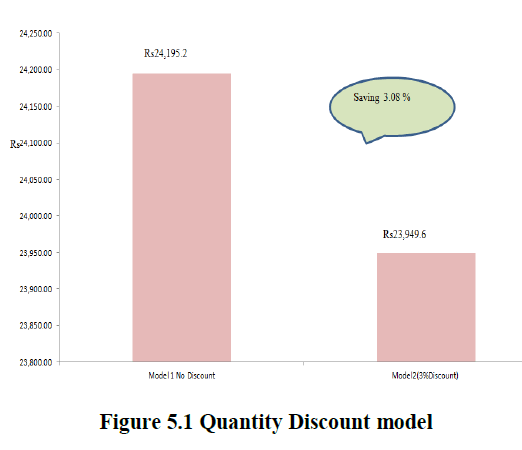 |
| B. Economic Order Quantity |
| The EOQ model for rotor shaft component By saving around 25 percentage per year |
 |
| C. Complete Aggregation Model |
| For saving around the 9.74 percentage per year |
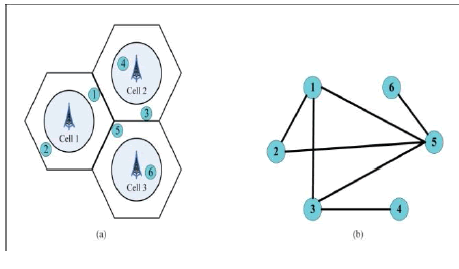 |
| D. Tailored Aggregation Model Saving around 11.45 percentage per year |
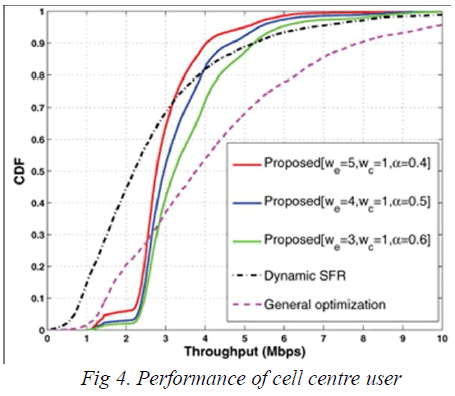 |
SUM MARY |
| As a leading pump manufacturing company, it is necessary for the company to reduce cost to be competitive in the market. Deccan Pumps Pvt. Ltd combines the best technology with the fresh way of thinking and continues to develop better pump sets, system, services and standard. This study has revealed that the current scenario in the industry is characterized by problems with inventory level. In a company, balancing inventory levels has been a major factor between healthy profit and the operating loss. In dealing with their supplier the company should relate the budget with their internal process and come up with ideal inventory balance. |
CONCLUSION |
| For the Deccan Pumps Pvt Ltd to be more profitable continuous improvement in process is necessary. A steady reduction in inventory can yield process efficiency which can in turn create cost saving. Inventory management will pay immediate and long term dividends by reducing the amount of time employees spend and performing their tasks. The procedure for pulling, receiving and replenishing stock should be established, with considerations made for any particular environment. These procedures should be enforced the company for inventory accuracy and they developed only through adherence to consistent practices and procedures. It involves more than immediate and reactionary decision that affects the business. The enforce procedures that will serve as the tools in utilizing the system on a daily basis in the most efficient manner to produce the most profit of the company. The EOQ models can reduces the transport cost and ordering costs. Another complete aggregation model can maintained the optimal order. The tailored aggregation model can reduces the total supply chain cost. |
| A. Recommendation for future work |
| • This project work has focused on areas related to procurement of raw material. The analysis can be extended to other areas of supply chain management which can include distribution, transportation, and other related areas. |
| • The time frame for the study can be increased. In this study only one year has been used for purposes of analysis. Further studies can focus on taking bigger time frames so as to have long term trend as an inclusive element in the analysis. |
| • In this study only seven specific products have been selected for detailed analysis. Deccan Pumps Pvt Ltd has several products in their supply chain and this study can be a basis for further studies in other product categories. |
References |
|